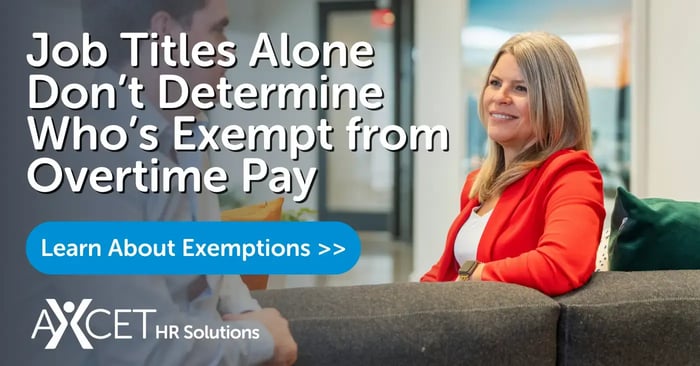Non-Exempt Workers
Non-exempt workers must be paid overtime (time and a half) for any hours over 40 they work in a single week.
Exempt Workers
Exempt workers are exempt from overtime requirements — but they must be paid the same salary every week, if they worked any portion of it, with a few narrow exceptions. (See below.)
Employers do not determine whether an employee is exempt or non-exempt. It’s determined by how the government classifies the type of work an employee does. To be exempt, the employee must earn a salary of at least $23,600 (this is subject to change under the new - and pending - FLSA overtime rule) and perform relatively high-level work as the primary duties.
Specifically, in addition to the salary test, the employee must meet one of the following criteria:
- The employee is in a “learned professional.” Lawyers, doctors, dentists, registered nurses, accountants (but not bookkeepers), teachers, architects, engineers, scientists (but not technicians), pharmacists, actuaries, and clergy are exempt, as is anyone else whose work is “predominantly intellectual, requires specialized education, and involves the exercise of discretion and judgment.”
- Employees, who are a “creative professional,” like an actor, musician, composer, writer, cartoonist, or in some cases a journalist.
- The employee's primary duty is managing the business or a part of the business and the employee manages at least two people.
- The employee does work directly related to management or general business operations that involves the exercise of independent judgment and discretion about matters of significance. This refers to relatively high-level employees whose primary job is to keep the business running (such as HR, finance, marketing, PR, and legal) and who have the authority to make independent decisions on significant matters.
- The employee is a computer systems analyst, computer programmer, software engineer or other similarly skilled worker in the computer field whose primary work meets the requirements here.
- The primary duty of the employee is sales and regularly works away from the employer’s place of business.
You can read more about these exemptions here.


